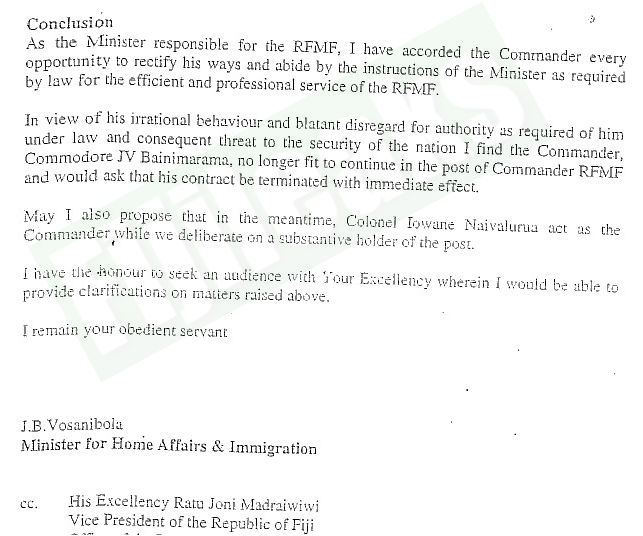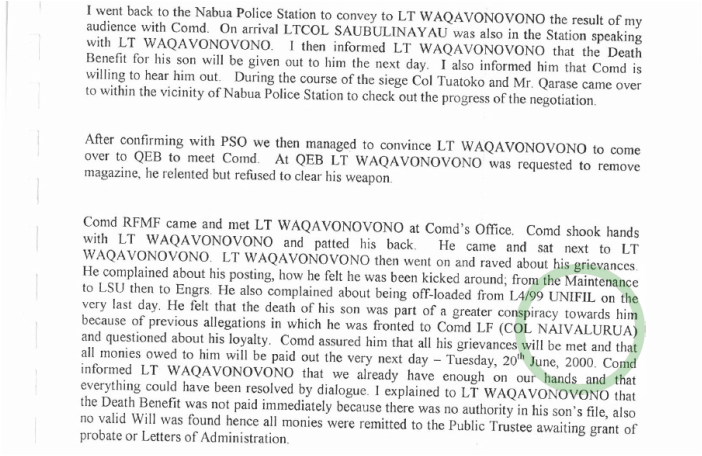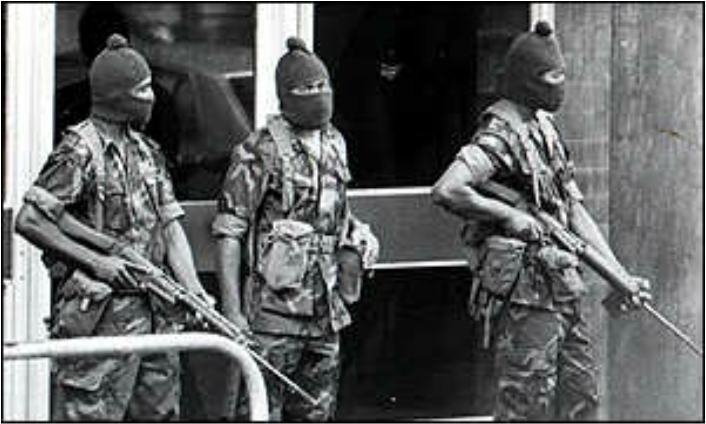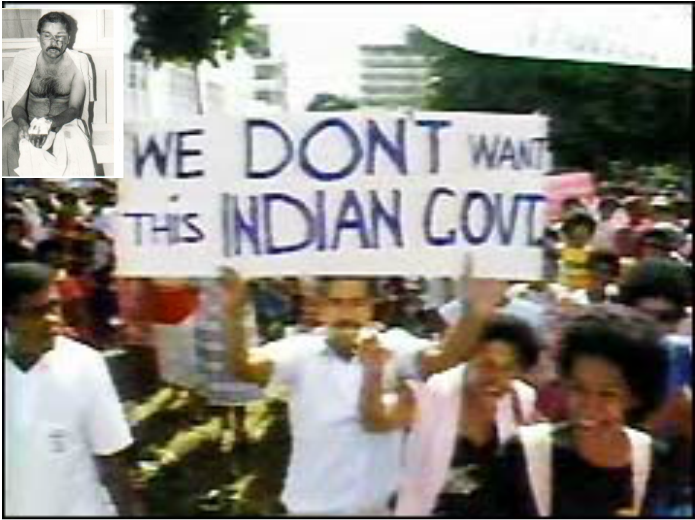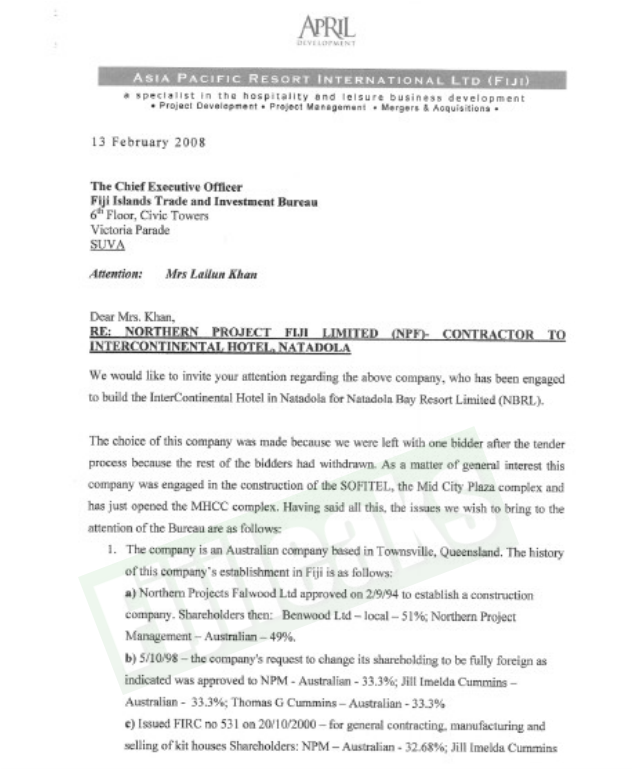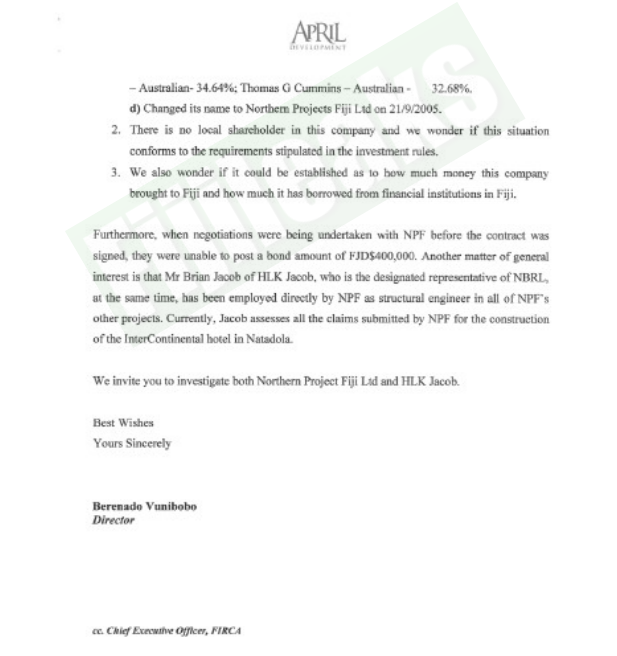Kubuabola said the Foreign Ministry has put in place a selection process that Ambassador Naivalurua and other candidates had to go through, which included a face-to-face interview with a panel made up of senior Government officials and former diplomats. With Naivalurua’s stint as a diplomat and his vast experience as a career military officer who has served in peacekeeping duties overseas, the Ministry is optimistic that he will elevate Fiji’s bilateral relations with China to greater heights.
According to one of the panelists, he (the interviewer) felt very intimidated and uneasy over the presence of military's terror chief and current RFMF Land Force Commander Sitiveni Qiliho on the panel. Basically, the positions were advertised and a selection committee of Robin Yarrow, Berenado Vunibobo, Ratu Isoa Gavidi, and Taufa Bole was convened by Kubuabola to interview for vacancies in Brussels, Canberra and Wellington
They interviewed all the short listed candidates and provided recommendations to Foreign Minister Kubuabola who then sent his recommendations to Frank Bainimarama for approval. According to one of the panelists Bainimarama did not accept the recommendations and asked the Foreign Minister to re-advertise the positions.
A Selection Panel of Qiliho, Solicitor General Sarvadanand Sharma, Ajit Kodagoda from C J Patel and CEO of ANZ Vishnu Mohan was proposed by Bainimarama. Kubuabola argued to retain the former panel and Bainimarama relented to the former panel of ex-ambassadors but with the addition of Qiliho and Sharma.
By now China became suddenly vacant as well and the new six member panel interviewed for China as well as Brussels, Canberra and Wellington.
Naivalurua got the diplomatic posting. We say Qiliho should have not been selected as one of the panelists and he should have definitely recused himself from selecting Naivalurua. Of course, given the dictatorial and stage-managed nature of diplomatic appointments, wrapped in the garb of due process and transparency, the outcome would not have mattered even if Qiliho had recused himself. 'No military officer will benefit from my coup,' said Bainimarama. Naivalurua puts to rest Bainimarama's BIG WHITE LIE.
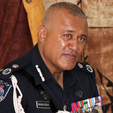 LOYALTY TESTED
LOYALTY TESTED The result was that Waqavonovono picked up his weapon and helmet and walked towards the guard post, apparently discharging himself from guard duty. Ali followed and further oral exchanges occurred but, when Waqavonvono turned to face Ali, the latter fired a shot from the hip. It struck the other man who immediately dropped his weapon and helmet, turned to the wall with his hands behind his head and shouted, “Take cover”. At this, Ali raised his rifle, took two steps nearer to Waqavonovono and fired two aimed shots which killed him.
Ali then shouted in Fijian “Who else, that’s one, who else?” and fired shots at Privates Baravilala, Nasalu and Naiyalatabua and Corporal Sigaveivola. He was subsequently charged with committing five civil offences contrary to section 70 of the Army Act, 1955, of which one was the murder of Waqavonovono and the others, attempted murder of the other four men.
He was tried by general court-martial at the Officers’ Training School at Vatuwaqa commencing on 6 July 2000 but adjourned on that day until 18 September 2000. The judge advocate was a High Court judge. The court-martial sat for 7 days before adjourning to Lebanon where it sat for five more days in November 2000. The court returned to Fiji but did not resume until March 2001 in which month it sat for fifteen more days. The members of the court found Ali guilty of the murder of Private Waqavonovono and of the attempted murder of Corporal Siqaveivola but not guilty of the other three charges of attempted murder. He was sentenced to life imprisonment for the murder and 10 years concurrent for the attempted murder.
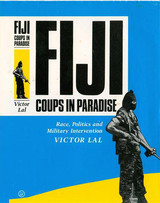
The co-leader of the violent i-Taukei Movement and one of the key conspirators Inoke Kubuabola had told Islands Business magazine of May 1988 that for more than six hours on April 19 he and Sitiveni Rabuka, later joined by Jone Veisamasama, 'talked about different options'. It was on 19 April that the groundwork for the coup was laid and according to Kubuabola, 11 May was the day his co-conspirators decided to proceed with its execution. He also claims that when it was learnt that Parliament would not sit on Friday they had agreed to bring forward the coup to Thursday; with Naivalurua and ten others hiding behind balaclavas ready to storm Parliament and bring death and destruction to Fiji in the name of bogus indigenous rights.
Meanwhile, the two coupists Kubuabola and Naivalurua who so cruelly cut short the the Indo-Fijian descendants march From Plantation to Parliament on 14 May 1987, one hundred and eight years to the day the first Indian indentured labourers set foot on Fijian soil, are reaping the rewards of coups.
One is Foreign Minister and another Fiji's new ambassador-designate to China. Another commonality of interest is marriage: Kubuabola's daughter is married to Naivalurua's son.
Welcome: Balaclava Storm Trooper to Beijing.
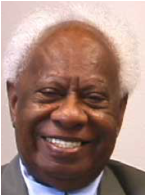 Coup Silver Fox
Coup Silver Fox Earlier, in February 2008, he was busy with the controversial Natadola project as director of Asia Pacific Resorts Limited's (APRIL). In May 2010 Aiyaz Khaiyum through Bainimarama's Cabinet had approved the Natadola Development Bay Development Decree to plug the erosion of funds through the Natadola development project.
The decree cancelled former developers APRIL'S foreign investment certificate because of the alleged non-disclosure and misrepresentation of its foreign shareholders. It also provided for the forfeiture of the shares held by APRIL in Natadola Land Holdings to FNPF Investments Limited. In addition, all properties held by APRIL that formed part of the integrated resort development were to be transferred to the property of NBRL.
Vunibobo was recalled to Fiji after he failed miserably in getting a posting for Pita Driti to the United Nations.

